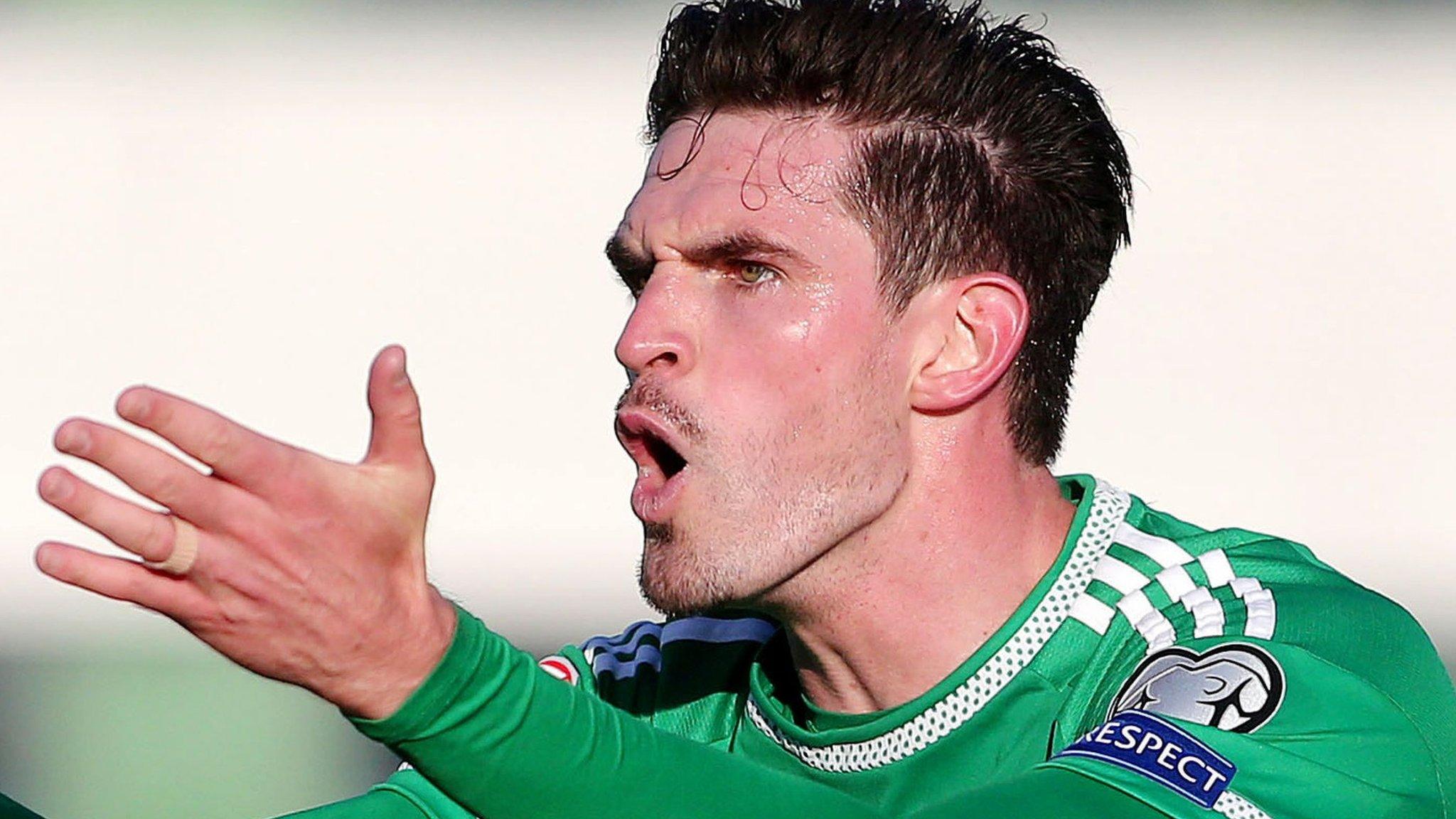Scottish football: Domestic bliss amid travails abroad
- Published

Fans queued outside Celtic Park to buy season tickets
Scottish football is lurching between extremes. There remains a great sense of frustration and dismay at missing out on Euro 2016 in France, yet domestic season ticket sales are on the rise.
Scotland's failure in the qualifying campaign brought an inevitable period of introspection, but the preparations of the rest of the home nations for the finals, alongside two friendly matches in which Gordon Strachan's national team failed to register a shot on target, have exacerbated the reproachful mood.
Yet domestic football has found resilience within reach, since the arrival of Brendan Rodgers at Celtic created queues of supporters seeking season tickets on Monday. Rangers, too, are confident of selling more season tickets than ever, with 33,000 fans having renewed before last Friday's deadline.
Hearts are on course to repeat last year's feat of selling all of their season tickets and essentially filling Tynecastle's home attendance for every league game. Aberdeen will hope that consecutive second-place finishes will enhance the sense of progress being made under Derek McInnes and attract significant crowds.
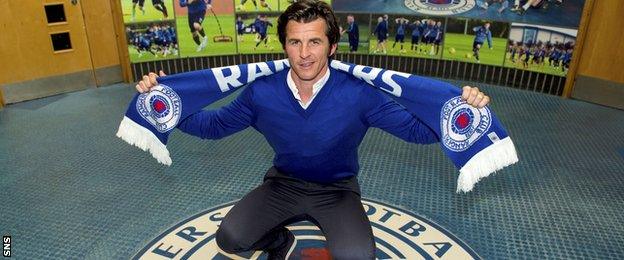
Midfielder Joey Barton has moved to promoted Rangers from Burnley
Across the top flight, there are reasons for fans to be optimistic, although attention is inevitably drawn to the high-profile arrivals in Glasgow. Rodgers was in charge of Liverpool 12 months ago and his appointment as Ronny Deila's successor has enthused a Celtic support that has diminished in recent seasons.
Rangers promotion to the top flight, and with it the anticipation of an additional presence in the title race along with the Old Firm rivalry, has also had a positive impact. The signings of Joey Barton, in particular, and Jordan Rossiter have bolstered the mood of Rangers fans and, like Rodgers, also brought additional attention to the Premiership.
The contrast to the mood towards the national team is stark. Strachan chose to play friendlies against Italy and France in the hope that his players would benefit from the challenge of facing elite sides.
In reality, the games were chastening because they only exacerbated the sense that Scotland are bereft. Strachan himself has consistently pointed out that the squad lacks a world-class figure, although the same might be said of Romania, Albania, Northern Ireland, Republic of Ireland, Iceland, Austria and Hungary - all countries who are competing in France this summer.
There is a clutter of issues to contend with. Strachan's remark is a valid observation but not a reason why the national team failed to qualify.
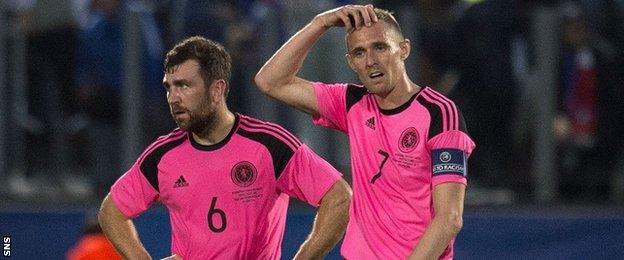
James McArthur (left) is the only product of the Scottish youth system playing in England's top flight
Displays improved initially under his stewardship, but there was a critical failure of performance against the Republic of Ireland in Dublin and Georgia in Tbilisi.
Strachan has pointed to players being scared in possession, and there is a distinct lack of central defensive options, but progress can still be achieved through unity and teamwork. Excuses will seem an inappropriate response to a poor start to the World Cup qualifying campaign next season, not least because failure has become the default expectation.
There are deeper concerns, though, since Scotland continues to fail to produce players capable of performing at the very highest level.
Darren Fletcher, James Morrison, Matt Ritchie, Ikechi Anya and James McArthur are the only regular squad members currently playing for clubs who finished above the relegation places in the English Premier League and only the latter is the product of a Scottish club's youth development set-up.
Anomalies exist, since Ross McCormack and Jordan Rhodes have commanded multi-million pound transfer fees in recent seasons. They are, in part, a result of the over-inflated finances of the Championship in England, but Steven Naismith, Alan Hutton, Craig Gordon and Steven Fletcher have also all moved for significant transfer fees during their careers.
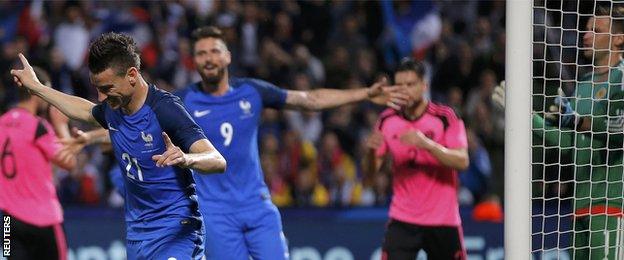
Scotland had two attempts on goal during their 3-0 defeat by France in Metz
Talent exists, but there are legitimate concerns about the development of players in Scotland. The Pro Youth set-up has delivered academy structures that have vastly increased the intake of young players without a proportionate increase in producing top-class players.
The number and ability of youth coaches, pathways to regular first-team football, athletic development (encompassing strength and conditioning and nutrition) and training routines that fail to sufficiently challenge players' improvisation and game intelligence are all factors.
Reviews have become commonplace - Scottish FA performance director Brian McClair's latest recommendations are now being considered by the clubs - but none have had the far-reaching impact and results of the likes undertaken by the German and Icelandic FA in recent decades.
Both those nations implemented coherent, national strategies that suited their needs and circumstances and, crucially, were monitored and delivered tangible results. Scottish football is still wrestling with the issues, even while the domestic game feels in a period of resurgence.
- Published7 June 2016
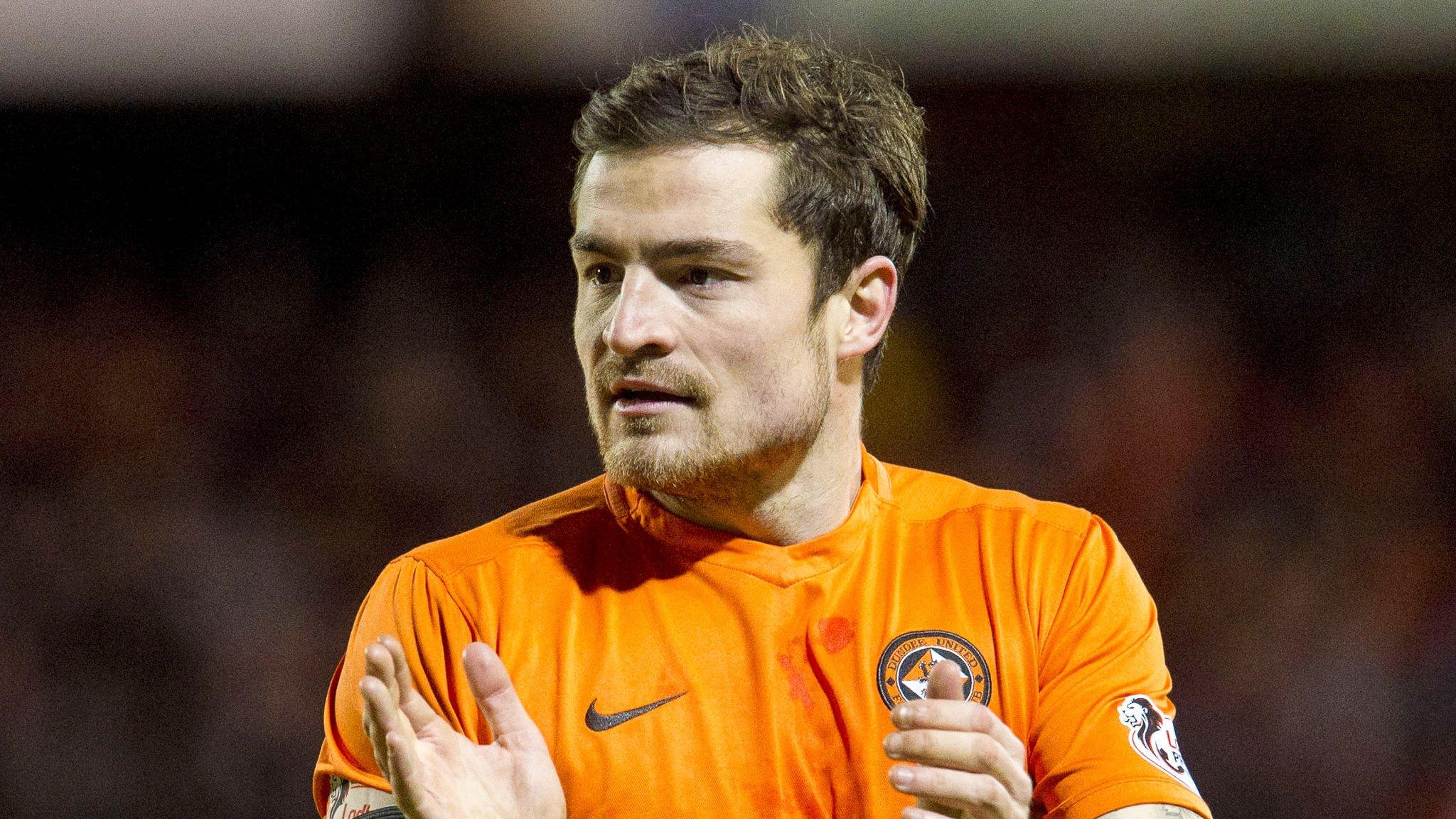
- Published7 June 2016

- Published9 June 2016
